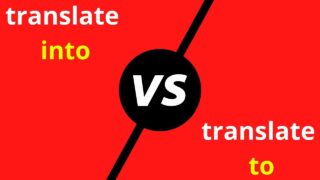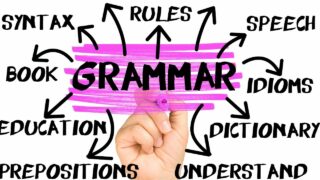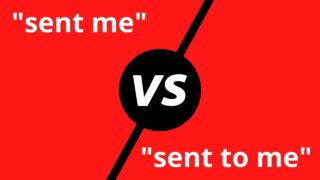Picture this: You are watching an old-timey, black-and-white film from the mid-20th century. The setting is an elaborately decorated hotel lobby. A man in a suit with neatly combed hair and wearing a freshly pressed suit approaches the reception desk. The receptionist looks up, smiles, and says, “Good evening Mr. Carlson, are you here for …
Grammar
Many native and non-native speakers of English alike are on the same boat regarding the confusion as to whether “Welcome aboard” or “Welcome on board” is grammatically correct. To shed light on these language-related peculiarities, this post tackles the grammatical nuances between “Welcome aboard” and “Welcome on board,” together with some contextualization for an easier …
A poem is just like a song. It is guided by beautifully crafted rhythmic progressions and powerful words that make us respond emotionally and even reminisce nostalgic events. Poems, as well as music, are central in the lives of humans because they have the ability to shape how we make sense of life and attach …
Prepositions, conjunctions and adverbs are all parts of speech that tend to confuse writers. In part, this is because nobody remembers being taught about them properly. But they can also require you to completely change the order of the phrases in a sentence when they appear. For example, “as a result” and “as a result …
It is quite an understatement to say that many writers grapple and scuffle with punctuation and abbreviation systems like clockwork- And by extension, these two grammatical writing systems may have to be interwoven at times, thereby making matters more ill-fated than they already are. But if we bear in mind that we, humans, are hyper-creative …
Telling prepositional verbs apart is a back-breaking, Herculean mental task for both native English language users and non-natives alike. Interestingly, this is quite an unsurprising phenomenon according to language experts, as learning prepositions entail a higher level of grammatical maturity. So, you should never, ever panic about why you cannot easily make out the difference …
Every language has a basic kind of word order for sentences. In English, the subject of a sentence usually comes at the beginning, followed by the verb and the predicate. The key word there is “usually”! If you’re relieved that you’ve finally got English word order down, brace yourself: Sometimes, it can be changed! There …
We seek to know what a particular word means to make sense of a phrase, and we also try to make sense of a phrase to be able to understand the holistic meaning of a clause. Once we understand what the clause means, we can then go back to the specific linguistic elements that govern …
It’s nice when things turn out the way you want. Unfortunately, that’s not very realistic. Sometimes, there are things you have to do even if circumstances are less than ideal. When you find yourself needing a phrase to describe that feeling, just reach for “in any case.” How do you use “in any case” …









